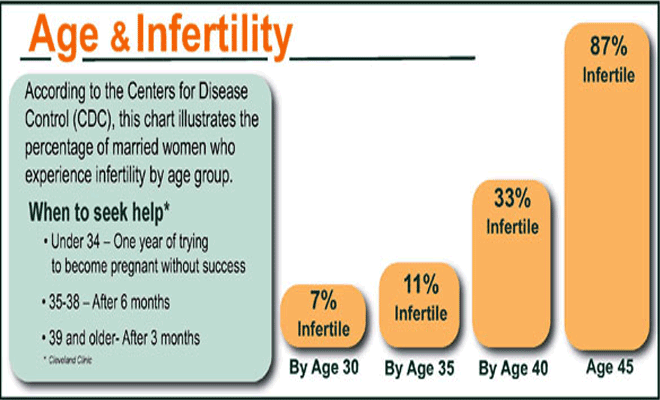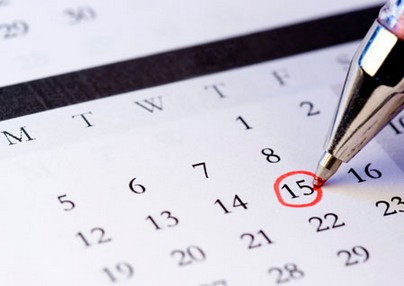How To Increase Chance Of Pregnancy?

Contents:
Tips for Getting Pregnant
Some find it difficult to avoid pregnancy, while others have troubles conceiving. A number factors influence the ability to conceive, but there are certain things that can increase your chances. This article describes the ways to increase your chances of getting pregnant.
Stop Using Contraceptives
Some contraceptives are long lasting, so you need to understand that you cannot get pregnant immediately after you stop using it. The time that the female body needs to prepare for pregnancy after going off birth control is very individual.
- Hormonal contraceptives, such as oral contraceptives, hormone injections or Nuvaring have the longest impact on the body.
- If you use implanted contraceptives such as IUD, you should visit your doctor to remove them.
- If you use barrier methods (such as condoms, cervical caps, diaphragms or sponges), you don't need to worry about the recovery period. However, this does not mean that you can get pregnant at once. (Don't forget to take precautions to avoid sexually transmitted infections if you use this type of contraceptives.)
Calculate When You are Able to Conceive

Proper calculations increase your chances of getting pregnant.
There are several ways to calculate your ovulation:
- Start counting from the first day of the last cycle. On average, in most women the ovulation occurs on the 14th day of the cycle. (Does this mean that you should start trying to get pregnant only 2 weeks after the menses? Of course, not).
- If you have regular cycles, you can calculate the ovulation by dividing the cycle in two. For example, if your cycle usually lasts 28 days, then the ovulation is most likely to occur on the 14th day (14 days after the day your period began). If you have a longer cycle, the ovulation may start on the 20th day.
- Download the application to track your cycle. If you find it difficult to keep a calendar, the application will do it for you. Find “the ovulation tracker” and tune it.
- Measure your basal body temperature. During ovulation the temperature tends to rise slightly, which is a good sign that you are able to conceive. Hold the thermometer near the bed and measure the temperature as soon as you wake up in the morning. (Try to do it in the same time). Record your temperature every day. If you notice that the temperature has gone up for 0.5-1 F during one day or more, this means that you have ovulation right now!
- You are the most fertile within two-three days before the raise in the basal temperature, so if you track your basal temperature over the course of several months you are most likely to predict the day when you are most fertile.
- Keep track of your cervical mucus. It sounds rude, but this method is really of help. When your vaginal discharge is clean and elastic like raw egg whites, you are most likely to be able to conceive and should plan to have sex every day for three or five days from the day when you noticed a change in your discharge. After they become muddy and drier, and the chances of getting pregnant are reduced.
- Use kits to detect ovulation. Together with a pregnancy test you can buy an ovulation test at your local pharmacy. This will increase the price of your purchase, but it will also help to draw up a calendar of ovulation.
Have Sex
Once you know what you are able to conceive, go on! When and how often you have sex may influence how quickly you get pregnant, so the following tips may be useful:
- Start having regular sex before the ovulation. The egg is viable for 12 hours only, while sperms can live in the fallopian tubes up to a week. In order not to miss the moment, start trying to conceive a few days before the expected ovulation.
- Semen should be fresh. Despite the fact that sperm is viable within a week, it is not in the perfect condition during all this time. So have sex at least every other day during your fertile period. (Although you certainly can do it more frequently!)
- Do not use products that can destroy sperms, such as lubricants or chemical stimulants. If you are trying to conceive, avoid products enhancing the pleasure or preventing conceiving.
- Enjoy. If you have orgasm after the orgasm your partner, this contributes to the ingestion of semen into the cervix, pushing sperm further inside.
- Enjoy the pleasant feelings. Don't make sperm work against the gravity – after the intercourse, lie on your back and relax for a few minutes. A study of IVF effectiveness has proved that staying in a horizontal position for 15 minutes after sex can increase your chances of conceiving by 50 %.
Pregnancy Test
Once the ovulation ends, the period of expectation begins. Wait for the beginning of the next period, and if it doesn’t start, take a pregnancy test.
If you are very curious to learn whether you are pregnant, then try the following methods:
- Continue to measure the basal body temperature. If your temperature remains high for other 14 calendar days after the ovulation, the chances that you are pregnant are very high.
- Watch the implantation symptoms. Some women have small bleeding, looking more like spotting when the zygote is implanting to the uterine wall. This normally happens on 6-12 day after the conception. You may also have slight cramps.
The Main Conclusion and Recommendations
For purposes to increase your chances to become pregnant, you are recommended:
- quit using birth control tools;
- calculate the period favorable for conception;
- make love with your partner as often as possible.
If you keep to these simple rules, you can highly increase your chances to get pregnant.